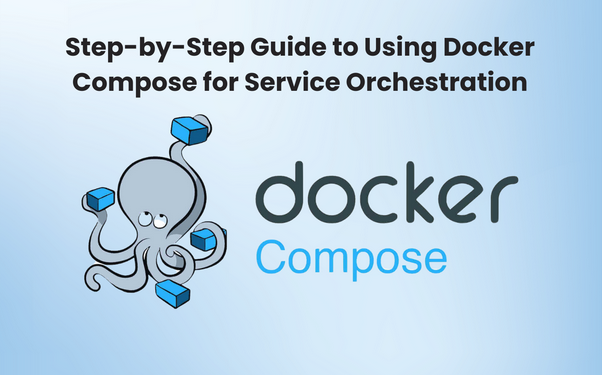Greetings, and welcome to an extensive blog on using Docker Compose for orchestrating services. To ensure smooth application deployment and management, gaining proficiency with technologies like Compose is crucial for DevOps. Knowing Compose may significantly improve your skill set, regardless of how experienced you are or if you are just beginning your DevOps Training.
Docker Compose has become a formidable tool when it comes to making multi-container application deployment simpler. In this blog, we will provide an in-depth guide that will help you understand Compose and simplify your development and deployment procedures.
Table of Contents
- What is Docker Compose?
- Installation and Setup
- Composing Your First Docker Compose File
- Running Docker Compose
- Managing Multiple Containers
- Debugging and Fine-Tuning
- Leveraging Docker Compose Efficiency
- Advanced Docker Compose Techniques
- Conclusion
What is Docker Compose?
Fundamentally, Compose is a tool for defining and executing Docker applications across several containers. Consider it as a conductor directing a symphony of containers, each with a distinct function for your application. With the help of this orchestration, developers can concentrate on creating code rather than worrying about the underlying infrastructure. It facilitates the creation, setup, and synchronisation of many containers.
Installation and Setup
Be sure Compose is installed on your machine before attempting any orchestration wizardry. Don’t worry if you haven’t done this yet; it’s an easy procedure.
Installation Steps:
- Go to Docker Compose’s official webpage.
- Pay attention to the installation guidelines specific to your operating system.
Verification:
Launch “docker-compose –version” in a terminal window to verify that the installation was successful. The installed version should show up here.
Composing Your First Docker Compose File
With Compose at your disposal, let’s specify your application’s services, networks, and volumes in a simple YAML file. Compose uses YAML, a human-readable data serialisation standard, as its preferred language.
Start with a Version:
Start the “docker-compose.yml” file by adding the version number. As an illustration:
Define Services:
List the services that you have included in your application. A separate section is provided for each service, including the image, ports, and any other customisations. This is a sample:
Add Networks and Volumes:
Extend your YAML file to add networks and volumes if your application requires networks and volumes. These components provide data persistence and communication across containers.
Running Docker Compose
Now that you have your Compose file prepared, it’s time to see the wonders. Run the following command inside the directory where your “docker-compose.yml” file is located:
This command fetches the required images, reads your file, and launches the specified services. Now, your orchestration is fully functional!
Managing Multiple Containers
Compose’s seamless scalability is one of its advantages. Let’s say your application needs more instances of a specific service to accommodate a higher volume of requests. If so, scaling is as easy as changing a number in your YAML file, thanks to Compose.
Scale a Service:
Assuming your “docker-compose.yml” has a service called “app,” scale it to three instances using:
Observe the Magic:
Compose divides the load by coordinating the launch of two more instances of your service.
Debugging and Fine-Tuning
Debugging and fine-tuning are essential components of the DevOps process, just as with any orchestration technology. With a set of commands to debug and improve your orchestration, Compose makes this process easier.
View Running Containers:
Use this to see your containers’ current status:
Tail Container Logs:
Examine real-time logs to find possible problems:
Update Your Composition:
Update your composition as your application develops with the following:
Leveraging Docker Compose Efficiency
As you learn more about Compose, efficiency plays a major role in service orchestration. Compose uses sophisticated setups to optimise resources. Reduce orchestration bottlenecks by using features like container dependencies and health checks to ensure your services launch in the proper sequence. To further enhance a more streamlined and resource-efficient orchestration, investigate the world of environment variables in your Compose file to dynamically modify settings dependent on your deployment environment.
Advanced Docker Compose Techniques
Beyond the fundamentals, your Compose adventure continues. Develop your orchestration abilities by investigating more complex methods. Explore the nuances of using custom Dockerfiles to expand services, safely store secrets, and perform service health checks. Discover the possibilities of using additional tools and scripts to expand Compose’s capability. Once you’ve mastered these sophisticated approaches, you can orchestrate services with precision and elegance, easily meeting the demands of application deployment.
Conclusion
Well done! You’ve made it through Compose’s complex world with ease. The ability to design, deploy, and scale applications with unparalleled simplicity is provided by learning Compose, regardless of experience level in DevOps training.
Your compass in the vast ocean of service orchestration is this step-by-step tutorial. Remember that Compose is your partner in creating scalable, reliable, and effective containerised apps as you proceed with your DevOps endeavours. Go ahead and confidently orchestrate now!


